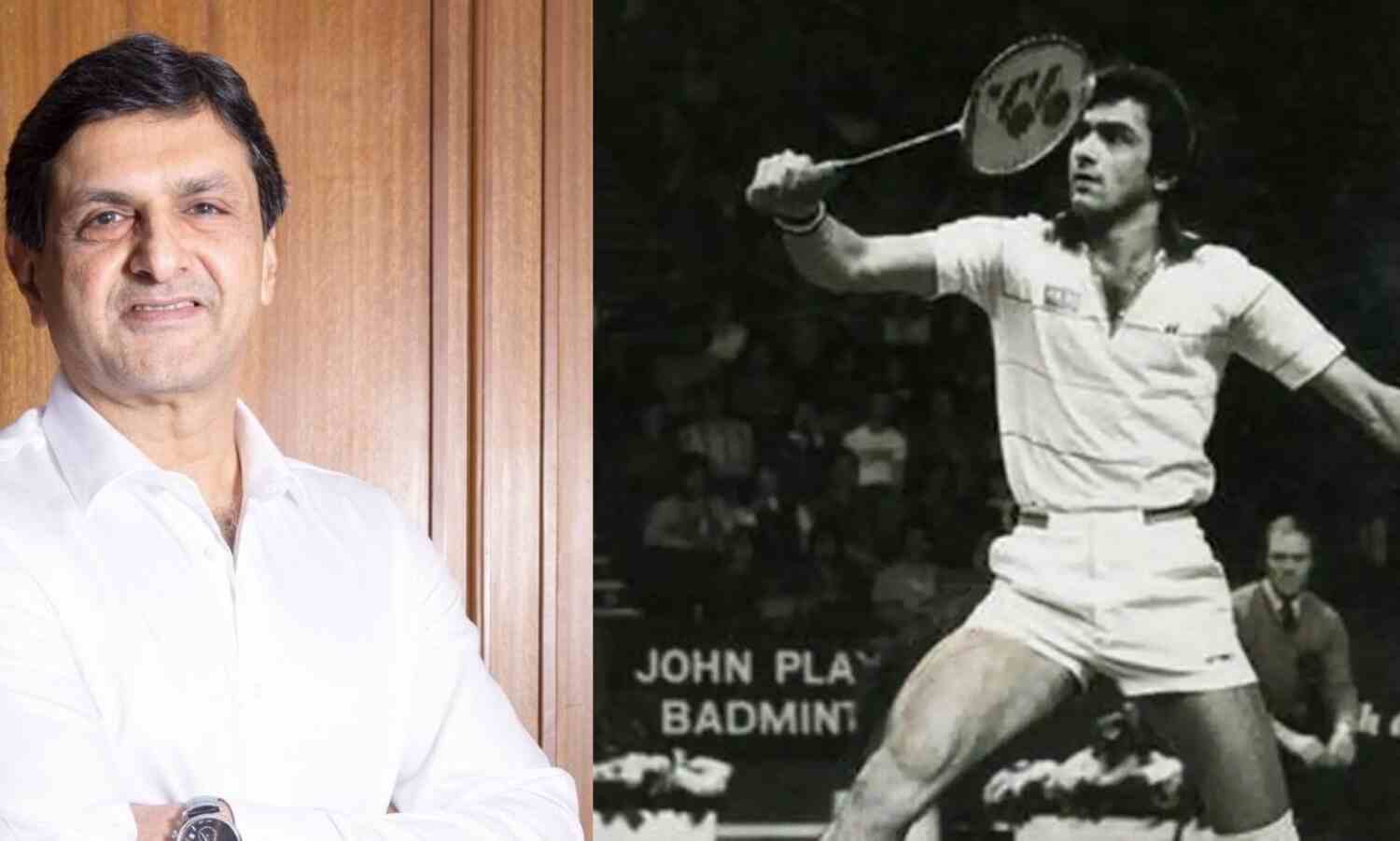
The Role of the Indian Government in Hindering Olympic Success: A Critique of Prakash Padukone’s Statement
Prakash Padukone, a legendary badminton player, recently expressed his disappointment with India’s performance at the Paris Olympics, especially criticizing the athletes after Lakshya Sen lost the men’s singles bronze medal match. He praised the government’s efforts, stating that all the athletes’ demands were met and it was time for players to take responsibility. However, Padukone’s statement appears to overlook several crucial factors that contribute to India’s underperformance in international sports competitions, particularly the Olympics.
Political Influence and Corruption
The role of politics in India’s sports administration cannot be ignored. The Federation International de Football Association (FIFA) banned the All India Football Federation (AIFF) in August 2023 due to ‘third party’ intervention, highlighting the extent of political influence in sports federations. This undue influence undermines the development of sports and hampers athletes’ progress.
The allocation of funds under the ‘Khelo India’ scheme has also come under scrutiny. The disproportionate allocation of Rs 608.37 crore to Gujarat and Rs 503 crore to Uttar Pradesh, both BJP-ruled states, compared to the meager Rs 33 crore given to Tamil Nadu, raises questions about whether the sports budget is being used for political gains rather than genuine sporting development. Such politicization of sports funding is detrimental to the overall growth of sports in the country.
The Brij Bhushan Singh Controversy
The Modi government, which Prakash Padukone seems to support, has also faced criticism for supporting BJP MP Brij Bhushan Sharan Singh despite serious allegations of sexual harassment, stalking, outraging the modesty of women, and criminal intimidation involving five women wrestlers. Padukone remained silent during this controversy, which underscores the selective criticism and lack of accountability within the sports community.
The Perspective of Sunil Chhetri
Indian football icon Sunil Chhetri has been vocal about the issues in the sporting culture in the country. He has pointed out that India’s lack of success in the Olympics is not due to a lack of talent but rather the inability to identify and nurture that talent. Chhetri’s observations highlight the need for systematic changes in how sports talent is scouted and developed in India.
The Infrastructure Challenge
One of the primary reasons for India’s struggle in the Olympics is the inadequate sporting infrastructure. Despite some efforts by the government, there remains a significant lack of proper infrastructure for training and practice sessions. World-class training facilities, cutting-edge equipment, and experienced coaches are essential for athletes to compete at the highest level. Many of India’s best athletes have highlighted the struggle to get the guidance, resources, and tools they require to train at a level that rivals their international competitors.
Countries with robust sporting facilities often have a competitive edge, enabling athletes to hone their skills and compete more effectively. In contrast, many talented athletes in India lack access to such facilities, which hampers their ability to reach their full potential. The absence of quality infrastructure is a significant barrier that the government has failed to address adequately.
Inadequate Funding and Support
While the economy has been prospering and the allotment of funds for various fields has been increasing, the sports sector still receives relatively meager support. Many Indian athletes struggle to afford the necessary equipment and training. The issue of funding is further complicated by the inconsistent financial support and sponsorships that athletes receive. This inconsistency impacts their training, equipment, and overall preparation, putting them at a disadvantage compared to athletes from better-funded nations.
The government, private sector, and NGOs need to collaborate to create sustainable funding models for athletes. Ensuring that athletes have the necessary resources to compete on a level playing field is crucial. However, the current funding model is far from ideal, and many athletes continue to face financial challenges.
Grassroots Development and Talent Nurturing
India’s approach to identifying and nurturing talent at the grassroots level is another significant issue. There is a need for a more systematic and widespread approach to sports education and training programs. Integrating these programs into school curriculums and providing a structured pathway for aspiring athletes to develop their skills from an early age is essential for long-term success.
Building a strong grassroots foundation is crucial for sustaining success in international competitions like the Olympics. However, India’s efforts in this regard have been insufficient. Many young talents go unnoticed and untrained due to the lack of a structured and widespread talent identification system.
Bureaucratic Hurdles and Sports Administration
India’s sports administration is dominated by politicians and bureaucrats who often prioritize their interests over those of the sportspersons. The recent confrontation in the Wrestling Federation is a case in point, highlighting how political interference and bureaucratic hurdles can hinder the development of sports in the country. Similar incidents have been reported periodically from other sports federations, further illustrating the deep-rooted issues within the sports administration.
The government’s failure to create a conducive environment for sports development is evident in these administrative challenges. Effective sports governance requires reducing bureaucratic red tape and ensuring that sportspersons’ interests are prioritized.
Mental Conditioning and International Exposure
Athletes’ mental conditioning and international exposure are critical factors that contribute to their performance. Many Indian athletes lack access to proper mental conditioning programs and opportunities to compete internationally. Competing against top-tier athletes from other countries provides valuable experience and helps athletes improve their skills.
The government needs to invest more in mental conditioning programs and ensure that athletes have ample opportunities to participate in international competitions. This exposure is essential for them to understand and adapt to the challenges they will face on the global stage.
Conclusion
Prakash Padukone’s criticism of the athletes and support for the government’s efforts fails to acknowledge the systemic issues that plague Indian sports. From inadequate infrastructure and funding to bureaucratic hurdles and political influence, the government’s role in hindering the development of sports in India is significant. Addressing these issues requires a collective effort from the government, sports bodies, the corporate sector, and the public.
Creating a conducive environment for athletes to thrive involves ensuring they have access to world-class training facilities, consistent funding, proper mental conditioning, and international exposure. Building a strong grassroots foundation and reducing political interference in sports administration are also crucial steps towards achieving long-term success in international competitions like the Olympics.
In conclusion, it is the Indian government’s failure to nurture sports culture and talent that has resulted in the country’s underperformance in the Olympics. Prakash Padukone’s statement overlooks these critical factors, and a more holistic approach is needed to address the root causes of the problem and pave the way for a brighter future in Indian sports.
Sources :
https://www.indiatoday.in/sports/badminton/story/paris-olympics-prakash-padukone-badminton-reaction-badminton-draw-blank-2577380-2024-08-05
https://www.aninews.in/news/sports/others/players-need-to-take-responsibility-prakash-padukone-after-india-shuttlers-fail-to-bag-medal-at-paris-olympics20240805224201/
https://www.freepressjournal.in/sports/high-time-our-players-step-up-and-win-coach-prakash-padukone-not-happy-with-lakshya-sens-defeat-in-olympics-badminton-sf
https://www.news18.com/olympics/players-need-to-introspect-not-ask-more-from-federations-prakash-padukone-rips-apart-indian-shuttlers-after-lakshya-sens-defeat-at-paris-olympics-8991224.html

